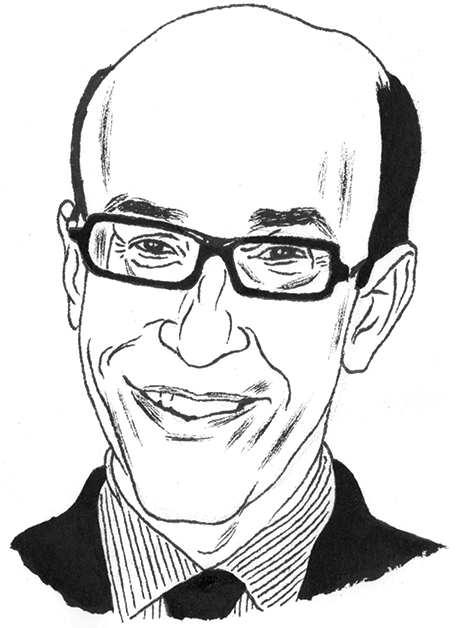Paper Problem
One great challenge facing society is where to draw the line between an individual’s right to privacy and the government’s right to tax, regulate, and enforce the law. Few areas illustrate this problem as well as the way we spend our money.
Our transactions are increasingly digital (and thus easily tracked), and in places like China many companies are adopting biometrics (like fingerprints or eye scans) to verify who we are (see “10 Breakthrough Technologies: Paying with Your Face”). In India, the government has taken biometric data from 1.1 billion people. But these developments alone don’t give us a good answer to the question of what we should do with good old-fashioned paper currency.
The demand for cash has dwindled in the legal, tax-compliant economy, but the underground economy uses it as much as ever. Incredibly, given that 95 percent of Americans report that they’ve never held a $100 bill (the rest say they hold one occasionally), there are 34 $100 bills floating around for every man, woman, and child in the country. Similar figures hold for big bills in other advanced economies. What are they being used for? The evidence seems clear: a huge amount of the world’s cash supply is used to facilitate tax evasion, crime, and corruption.

Given that, going to a completely cashless society might appear to be a great idea. But it’s not so simple. Ordinary people rely on cash to protect their privacy, and cash still comes in handy during prolonged power outages. One way to deal with the problem might be to phase out large-denomination notes such as the U.S. $100 bill, the 500-euro note, and the 1,000 Swiss franc note—anything worth $50 or more. (Although I wouldn’t suggest following the example of India, which recently phased out 85 percent of its currency supply almost overnight. This move had disastrous effects that could have been avoided if the change had been made more gradually, over a period of years.)
We shouldn’t get rid of cash entirely. Even with the rapid evolution of new technologies such as Bitcoin, paper currency provides ordinary citizens with a critical safety valve. The government’s objective in regulating new or old transaction technologies should be to discourage wholesale tax evasion and crime while leaving ordinary people a margin of privacy and convenience in their ordinary lives. Putting the economy on a cash diet is a good idea. Literally going cashless is not.
Kenneth Rogoff is a professor of economics at Harvard University and the author of The Curse of Cash.
Keep Reading
Most Popular
Large language models can do jaw-dropping things. But nobody knows exactly why.
And that's a problem. Figuring it out is one of the biggest scientific puzzles of our time and a crucial step towards controlling more powerful future models.
How scientists traced a mysterious covid case back to six toilets
When wastewater surveillance turns into a hunt for a single infected individual, the ethics get tricky.
The problem with plug-in hybrids? Their drivers.
Plug-in hybrids are often sold as a transition to EVs, but new data from Europe shows we’re still underestimating the emissions they produce.
Stay connected
Get the latest updates from
MIT Technology Review
Discover special offers, top stories, upcoming events, and more.